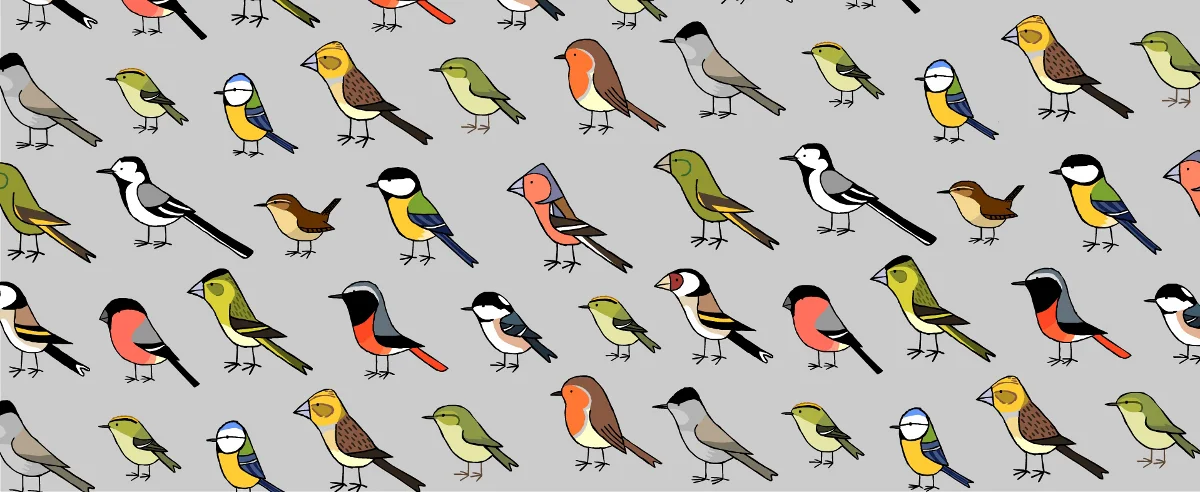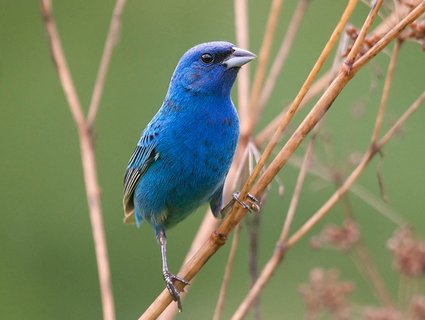Coming Soon! Look for these birds at your feeders.
Within the next two weeks you should look for Rose breasted Grosbeaks (RBG) and Indigo Buntings to visit your seed feeders. At feeders RBG’s are the more common of the two migrants and show up in greater numbers, eat more, and maintain a longer presence, usually lasting until mid-May before moving northward to their summer breeding areas. RBG’s winter as far as northern Peru.
Adult male RBG’s are very easily identified with their black and white plumage and big red V on the chest which really stands out against the stark white underside. The head is hooded with black and the wings are black with two white patches, one at the shoulder and one closer to the wing tip. The beak is large enabling this bird to crack open all kinds of seeds and capture insects which are a significant part of their diet during the breeding season.
Female RBG’s are primarily brown and white with a pale yellowish breast and belly, heavily streaked above and below, and have a prominent white eyebrow.
During their migration through TN, they will stop at feeding stations with sunflower, safflower, peanuts, and even suet.
RBG’s have a beautiful song but you may not get to hear them perform as they likely wait until they reach their summer destination.
Indigo Buntings may appear at feeders briefly in small numbers. Middle TN is part of their breeding range so it is possible to see a presence throughout the summer. They like a variety of seeds and seem to be most comfortable feeding on the ground. I have seen them on finch feeders.
We are hiring
We are looking for someone to fill a part-time position. Job requirements include customer service and sales, restocking seed which requires lifting up to 50 lbs., and general shop duties, 3 to 5 days a week with a maximum of 30 hrs. per week which includes 2 Saturdays per month. Starting wage is $15 per hour. Reliability, effort, and good work will be rewarded. It is a pleasant atmosphere to work in and customers are very nice. If you are interested, please email John with a resume if you have one, or thoughts as to why you would like to work here. woodthrushshopth@bellsouth.net



